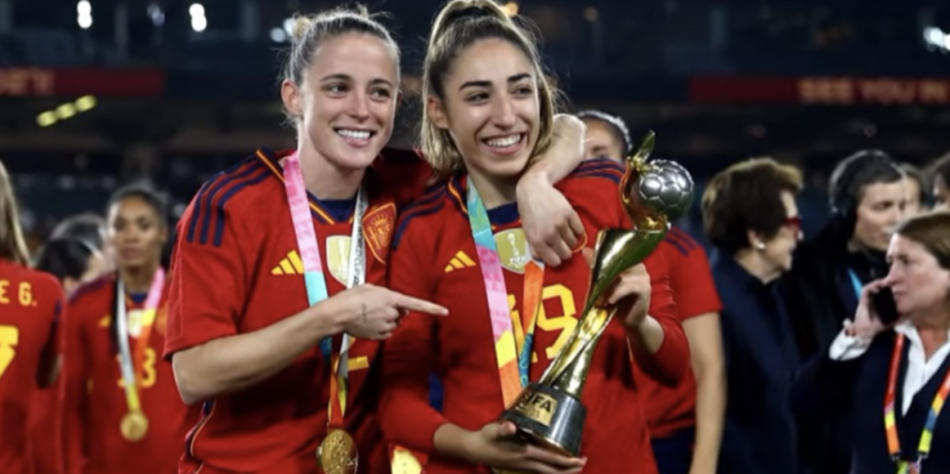Nearly 100 LGBTQ athletes competed at the 2023 FIFA Women’s World Cup, with Australia being the Gayest Squad there
At least 22 teams, including several prominent names, in the 2023 FIFA Women’s World Cup in football had openly LGBTQ athletes. The tournament has just concluded as Spain defeated England 1-0 in the final, which can be considered an upset given that the “Lionesses” are the reigning European champions, which was clearly shown in the odds of the best football betting sites in 2023 at Bookmaker-Expert.com.

Photo: Printscreen youtube.com/@CBCTheNational
A total of 96 football players who identify as gay, lesbian, bisexual, transgender, or queer and who are publicly out made up more than 13% of the athletes playing in the 2023 FIFA Women’s World Cup in Australia and New Zealand. Additionally, no fewer than three head coaches have come out in the open.
This World Cup featured a far bigger number of out LGBTQ athletes than any previous one did. This equates to around one out of every eight players. It is a staggering amount for a sport’s highest-level international championship. The several other LGBTQ athletes who are not out in the open were not included in that.
An IEyeNews contributor selected the individuals for this roll call based on news articles and social media posts. Some sportswomen have come out as LGBTQ to the media. Others are only being honest about how they live online.
Comparing This World Cup to the Last One, There Are More Than Twice as Many Out LGBTQ Athletes
Given the fact that numerous of these out athletes are stars in their native countries and have not felt the need to have a public coming-out jiff, it is a tribute to how far major international women’s sports have advanced in terms of the inclusion and recognition of LGBTQ athletes. Others have seized the chance to make sure that people in their nation and throughout the world recognize them for who they truly are.
The number of openly LGBTQ athletes in this category was now more than twice as large as the number of openly LGBTQ athletes in the 2019 Women’s World Cup. Over the previous four years, the total number of teams competing in the competition has increased by a third, from 24 to 32, whereas the number of out players has nearly doubled. That illustrates the expansion of acceptance.
Most of these athletes hail from regions with more tolerant LGBTQ legislation than Africa, the Middle East, and certain sections of Asia, including the Americas, Europe, and the host countries of Australia and New Zealand. Gay individuals are imprisoned in nations like Zambia and Nigeria. Despite claims to the contrary, studies indicate that Jamaica’s strict jail regulations are no longer being upheld.
Even yet, it is encouraging to see several South African ladies because that country has legalized homosexuality for 25 years. And, of course, we are aware that there are more people who might not yet feel secure being outside. Additionally, there are at least three of the head coaches at this World Cup that have openly declared their homosexuality.
LGBTQ Athletes Play on More Than Two-Thirds of the Teams, Including Football Legends
With at least 13 out athletes or more than 50% of the squad, Australia was the team with the most openly LGBTQ members in the competition. Sweden (8), Brazil (9), and Ireland (9) are also noteworthy. We might count three for the United States Women’s National Team (USWNT). It is a decrease from five in 2019.
Over two-thirds or 22 of the 32 teams, were represented. At least eight of them had a lesbian team captain, two of whom are legends who announced participating in their last World Cup and even bringing their international careers to a conclusion.
The social media profiles of more than 80% of the 736 athletes playing in the Women’s World Cup, as well as Google searches for news and information, had to go through to assemble this article that put a different light on the competition which was watched by more than 2 billion people, up from 1.12 billion in 2019.
We tried to lean on the side of thinking twice and did the best we could, without disclosing any players’ names. Even though there are numerous claims or suspicions that LGBTQ athletes exist, we have adhered to the “publicly out” proclamations. That number could be slightly different during the event as we did research prior to its start.





